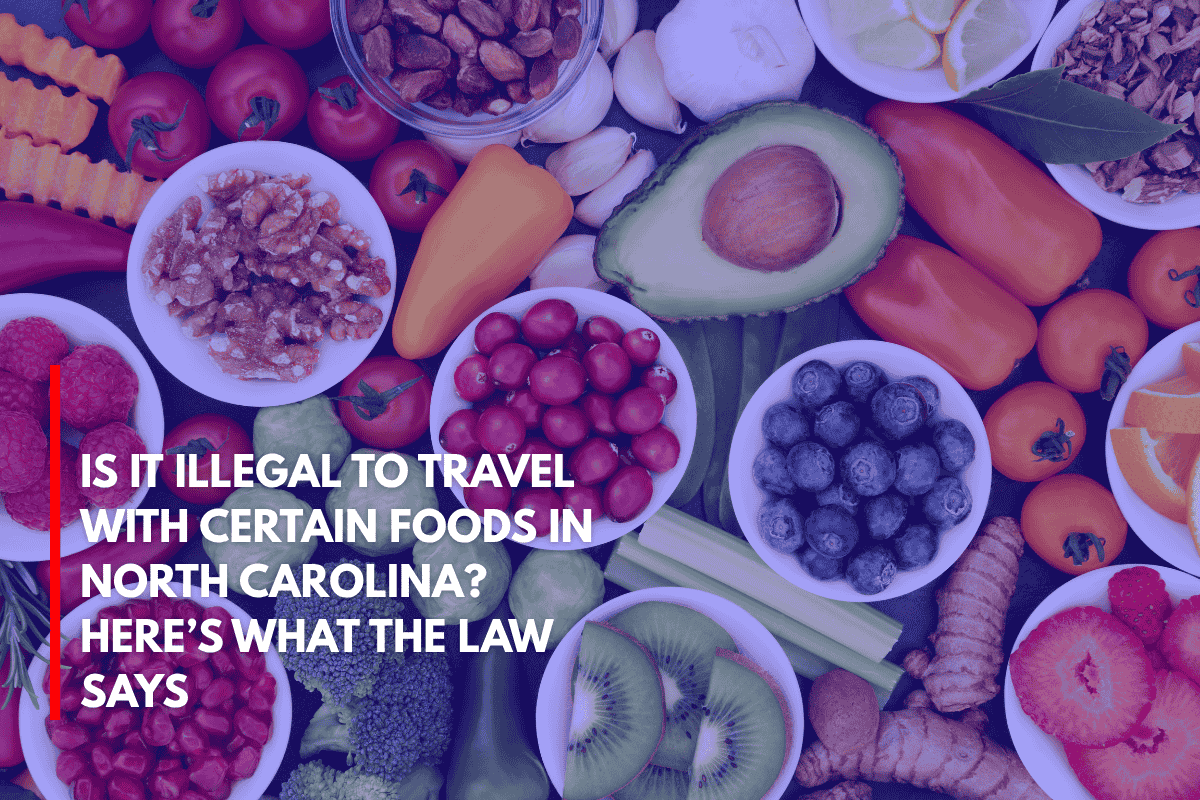Traveling with food in North Carolina is generally legal for individuals, but there are important regulations that apply to businesses, food vendors, and those involved in the commercial transport or sale of food. Here’s what the law says:
Traveling with Food as a Private Individual
No General Prohibition: There is no state law prohibiting individuals from transporting food for personal use within North Carolina, as long as the food is not illegal to possess (such as certain controlled substances or endangered species).
Traveling Across State Lines: Federal regulations may apply if you cross state borders, especially for certain agricultural products or raw foods that could carry pests or diseases. However, this is rare for typical consumer travel.
Commercial and Business-Related Food Transport
Permits and Licenses: Anyone transporting food for sale, donation, or distribution—including food trucks, vendors, and those supplying events—must comply with North Carolina’s food safety laws and obtain the necessary permits and licenses.
Food Safety Regulations: Food must be protected and kept at safe temperatures during transport (e.g., keeping potentially hazardous foods below 41°F or above 135°F as required).
Temporary Events: Food vendors at festivals or special events need a Permit to Operate from the local health department before setting up.
Waste Disposal: Proper disposal of food waste and grease is required for commercial operators.
Donating Food
Liability Protections: North Carolina and federal law (such as the Bill Emerson Good Samaritan Food Donation Act) protect food donors from liability, provided the food is donated in good faith and meets state and local safety standards.
Safety Standards Apply: Donated food must still comply with food safety regulations, especially for temperature-sensitive items.
Summary Table
| Situation | Legal? | Notes |
|---|---|---|
| Personal food transport | Yes | No general prohibition; not for sale or distribution |
| Commercial food transport | Yes, with permit | Must comply with food safety laws and obtain proper permits |
| Donating food | Yes, with protections | Must meet safety standards; liability protections apply |
| Transporting illegal foods | No | Includes controlled substances, endangered species, etc. |
Key Takeaways
-It is not illegal to travel with food for personal use in North Carolina.
-Businesses and vendors must obtain permits and follow food safety regulations.
-Donating food is protected by law if safety standards are met.
-Always check for specific restrictions if traveling with food across state lines, especially for agricultural products.
For most travelers, there are no legal barriers to transporting food within the state. For commercial or public distribution, strict compliance with food safety and permitting requirements is essential.
Sources:
- https://pos.toasttab.com/blog/on-the-line/food-truck-licenses-and-permits-in-north-carolina
- https://www.deq.nc.gov/food-donors-sop-safe-plates/open
- https://alexanderhealth.org/docs/enviroHealth/TFE_Requirements.pdf
- https://www.deq.nc.gov/marine-fisheries/inside-fisheries/travel/travel-policy-rev-nov-2021/open











Leave a Reply